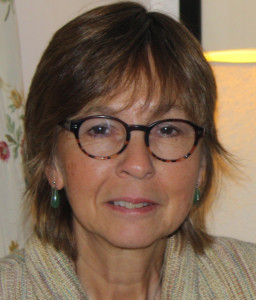 Shakespeare’s question about being springs to mind when as doctors we are faced with change. Do we “take Arms against a Sea of troubles, And by opposing end them?” That is, of course, if we are able to do this.
Shakespeare’s question about being springs to mind when as doctors we are faced with change. Do we “take Arms against a Sea of troubles, And by opposing end them?” That is, of course, if we are able to do this.
Rio is now a relatively common, though not ubiquitous, NHS IT replacement to medical notes, which is presented as a technological advance in relation to patient records. It involves all information taken during contact with patients, and in subsequent letters to GPs etc., being uploaded directly to the internet, therefore allowing widespread and immediate access by professionals with the appropriate clearance. It avoids the need for professionals involved in any particular case to contact each other to request information, or to alert that colleague as to their accessing the electronic file. It is, as it were, a modern day equivalent of the filing cabinet, which holds the medical records.
Interestingly, it has often in the past been part of the role of the medical secretary to ensure that the patient filing cabinets were securely locked and located in a room that is also locked. With the advent of Rio the gradual, but widespread, reassignment of medical secretaries to other duties has also come. They are finding themselves reborn as administrative staff within teams where “everyone is equivalent” and, arguably, roles have lost their previous clear definition.
But I digress. The withdrawal of medical secretaries ensures that doctors of all grades are increasingly doing typing duties. Junior doctors, where there are any, are increasingly the online scribe for ward rounds and other administrative needs. While they type, they can no longer attend to the patient who is in front of them, they do not hone their powers of observation or listening, nor do they have the capacity to engage in diagnostic discussion for the purpose of learning.
Some argue that electronic record keeping is no different to the taking of paper notes, and on the surface perhaps this argument has weight, but it does not take account of the total effect of electronic recording on the whole clinical team.
While the junior used to be the one who had more hands-on experience of the patient, and who could share this with the consultant, the whole team now depends on the wisdom of the screen. From the patient’s point of view, I have witnessed ward rounds in centres of excellence where no one in the team has any firsthand knowledge of the patient, but rely on the computer, brought to the bottom of the bed, to light up their minds. How many of us can confess that we really would prefer our GP to look at us when we go to see them, rather than at the screen?
Or maybe not. Might the real reason for the ease with which the written record and medical secretaries have been kicked into touch, be the increasing preference among many to avoid face to face contact with others, and to feel safer with an iPad or a phone to look at. With the medical secretary gone, we can avoid allowing someone else to know our movements and our habits. We can avoid our vulnerabilities and weaknesses coming to light. We have no need of that type of support with the internet to hand. But there is a great misunderstanding here—just as there was with the abolition of the senior nurse/matron and consultant relationship. Tea and biscuits in matron’s office was a carefully orchestrated and respected sharing of patient care. It was done in a human way, with an appreciation of shared power and responsibility.
So is this just a rant against technology and change, or a question about being with patients, and being able to think with colleagues? Is it, in fact, “Nobler in the mind to suffer the Slings and Arrows of outrageous Fortune?” We may embrace, or we may give in to the shredding of the written note, but Rio will not have an awareness of the sacrifice and loss, nor will it have the ability to warn of the pitfalls and the ways these might be prevented. Only humans can do that.
Jennifer Stein has worked as a consultant psychiatrist in psychotherapy in the NHS for over 20 years, latterly in Bedfordshire.
Competing interests: I declare that I have read and understood BMJ policy on declaration of interests and I have no relevant interests to declare.